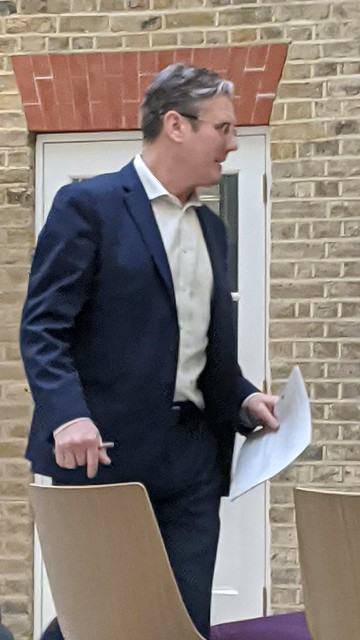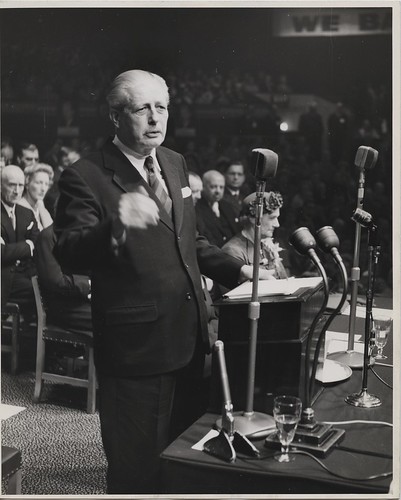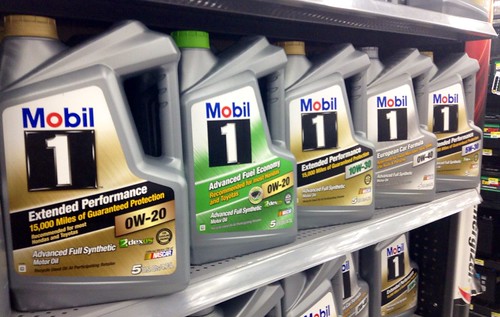Bruce Mau
I spent part of the bank holiday weekend reading and finally managed to tuck into designer Bruce Mau’s signature book MC24. For those that haven’t heard of him Bruce Mau is a Canadian designer and academic. He founded a brand design agency: Bruce Mau Design which is now part of marketing combine Stagwell. His Massive Change Network (MCN) is in the transformation business similar to Stewart Brand’s Global Business Network (acquired by the Monitor Group now called Monitor Deloitte) and The Long Now Foundation. The philosophy of Bruce Mau and feels like it had been lifted from an amalgam of TED Talks. Bruce Mau believes in a sustainable future with techno-optimist bent to his views.
The MC in MC24 is Massive Change. The 24 stands for his 24 principles for designing massive change in life and work – think Dieter Rams Ten Principles of Good Design and Brian Eno’s Oblique Strategies meets Robert Greene’s 48 Rules of Power.
The 24 principles Bruce Mau expands upon are:
- First inspire design leadership, lead by design
- Begin with fact-based optimism
- Always search for the worst
- Quantify and visualise, seeing is believing
- We are not separate from, or above nature
- Design for the power double-double
- Think forever design, for perpetuity
- Design your own economy
- Sketch: hey somebody let’s fail
- Think like you are lost in the forest
- Be whole brain creative, its a talent and a skill
- Compete with beauty
- Design for all the senses
- Rise above the noise
- Design the time of your life
- Design the difference not the object
- Design the platform for constant design
- Scale for impact
- Design the invisible
- Design the new normal
- Design what you do to tell your story
- New wicked problems demand new wicked teams
- Those who do teach, get out there and do
- Work on what you love
Bruce Mau, like Robert Greene has principles that seem to contradict each other. Publisher Phaidon have wrapped the hard back cover of the book in an iridescent satin fabric that a photograph doesn’t do justice to. Regardless of whether you think the book is a self-help bible, your creative muse, an objet d’art or something nice to thumb through on a Sunday afternoon Bruce Mau and his book MC24 are ideal.
China
Where China is beating the world – by Noah Smith – interesting article, although it lacks some nuance about Chinese development, consider it a starting point that you can explore in more depth from, rather than the full story
China Can’t Afford to Prioritize Security Over the Economy – Bloomberg
The Chinese youth unemployment phenomenon | Financial Times – 20 percent unemployment rate, which is reflected in China Economy: Recovery Disappointment Has Set In – Bloomberg
Malaysia detains Chinese ship linked to suspected illegal salvage of British WW2 wrecks | Reuters
I have alluded to the impact of China’s new espionage law. VisualPolitik has pulled together a good video on how it’s being interpreted by multinationals, policy wonks and politicians. It will have precisely the opposite impact that China would like it to have on its economy.
Consumer behaviour
How many Britons agree with Andrew Tate’s views on women? | YouGov – so much in this. You also need to think about bias in questions, that its done online and the ‘you can think it, but you shouldn’t say it’ aspect of how Tate supporters might think about the questions
Interesting debate on how the ‘evangelical bloc’ has evolved over time from being primarily theological to being primarily political in nature.
Culture
Nu-metal is cool now – The Face
Economics
Immigration running at ‘unsustainable’ level, says senior Tory, ahead of publication of figures for 2022 – UK politics live – combination of post-COVID and post-Brexit
De-risking trade with China is a risky business | Financial Times – the FT struggling to make an argument against de-risking shows how much the neo-liberal globalist argument is out of step with the times.
Energy
Ofgem wants your energy supplier to make more money (update) | Financial Times
Solar power investment to exceed oil for first time, says IEA chief | Financial Times
Power of Siberia: China keeps Putin waiting on gas pipeline | Financial Times
Saudi diesel imports from Russia, exports to Singapore hit records | Reuters – Saudi Arabia taking advantage of an arbitrage opportunity
Lex in depth: the staggering cost of a green hydrogen economy | Financial Times – this is an area that Ireland can win due to its plentiful wind energy potential
Ethics
How doctors buy their way out of trouble | Reuters – When federal enforcers alleged in 2015 that New York surgeon Feng Qin had performed scores of medically unnecessary cardiac procedures on elderly patients, they decided not to pursue a time-consuming criminal case. Instead, prosecutors chose an easier, swifter legal strategy: a civil suit. Qin agreed to pay $150,000 in a negotiated settlement and walked free to perform more cardiac surgeries at his new solo practice in lower Manhattan. Qin faced no judge or jury. He did not admit to wrongdoing. He maintained his license to practice. What’s more, neither Qin nor government officials were required to notify patients who purportedly were subjected to vascular surgical procedures they didn’t need. Those included fistulagrams to spot issues like narrowed blood vessels or clots, and angioplasties to open clogged coronary arteries. Within months of the settlement, a registered nurse working for Qin at his Manhattan practice alerted authorities that something seemed amiss. The nurse, who ultimately turned whistleblower, alleged to federal prosecutors that the surgeon was performing unnecessary procedures on patients, mostly elderly Asian and Black immigrants whose care was covered by the public programs Medicare or Medicaid. Prosecutors indicted Qin in 2018 on a felony count of fraud, which carried a maximum sentence of 10 years in prison. But in 2021, in a deal brokered behind closed doors, prosecutors dropped that charge in favor of yet another civil settlement, court records detailing that agreement show. Once again, Qin kept his New York license to practice with no restrictions; a restricted license is one of the few ways the public can learn that a doctor has been disciplined for bad behavior. Qin agreed to pay a total of $800,000 in annual installments ending in December 2025, deposited with the U.S. Department of the Treasury. As an added penalty, he was banned from billing public health programs until February 2025
Finance
Exclusive: Chinese hackers attacked Kenyan government as debt strains grew | Reuters – that China is deploying this kind of capability says a lot about how concerned it is about African and ‘Belt and Road’ debt. Act in haste, repent at leisure.
Exclusive: From Russia with gold: UAE cashes in as sanctions bite | Reuters and Russian gold shipments to the UAE, China and Turkey | Reuters
Gadgets
SanDisk Extreme SSDs keep abruptly failing—firmware fix for only some promised | Ars Technica – I have had this happen on my 2TB SSD
Germany
3nm AI chips and 6nm microcontrollers will be key to TSMC Dresden | EE Times – which assumes that the German automobile industry isn’t facing an existential threat. But the German automobile industry is facing a range of existential threats:
- Their inability to live up to the past German reputation for quality
- Chinese manufacturers at the low-end
- German automobile makers struggles with software
- Japanese and Korean car manufacturers challenging the luxury end of the market. I would rather have a Lexus LX than a G-Wagen. At the moment Lexus have had to shut down the list on the LX they are that oversold
Hong Kong
chanhiu design – really nice graphic design. I love their project reflecting on Hong Kong-made knock-off toys familiar to Hong Kong children as well as European children – where these toys turned up in markets during the 1960s through to the early 1980s. More here: Chan Hiu explores Hong Kong’s playful past – The China Project
Cayman Islands fights attempts by Singapore and Hong Kong to lure Asia’s wealthy | Financial Times – the sharp uptake of Singapore vehicles versus Hong Kong vehicles is very interesting – an order of 10x magnitude greater. Interesting implications for Hong Kong’s wealth management business and China’s efforts to prevent capital flight from Greater China. It also implies that Hong Kong hasn’t been as successful at attracting foreign funds for investment in China. So the Hong Kong pivot towards the Middle East investor makes sense.
Hongkongers opt out of organ registry ‘amid fear of Chinese donations’ | The Guardian – the National Security Act might have suppressed open opposition, but Hong Kongers really don’t want to integrate with the mainland. Contrast this with Hong Kongers in Britain: ‘We are all thinking about how to contribute’: Hongkongers boost Britain’s suburbs | Financial Times
Cathay Pacific to order Boeing 777-8F freighter -sources | Reuters – interesting implied expectations around air cargo, especially when one thinks about the softness in Chinese manufacturing numbers at the moment
Did China Southern Airlines’ verbal abuse incident in Singapore draw less ire on mainland than discrimination row at Hong Kong’s Cathay Pacific? Observers weigh in | South China Morning Post – this is as much about mainland Chinese animosity towards Hong Kongers as it is about poor customer service
Ideas
Why Chinese Democracy is Better than Western Democracy According to Tsinghua Prof. Yan Yilong – different realities between China and the west
Doug Rushkoff Is Ready to Renounce the Digital Revolution | WIRED – fascinating read
Indonesia
Key Lessons From Indonesia’s China-Backed Mining & Infrastructure Ventures – The China Project
Innovation
How Japan Won the Lithography Industry – by Jon Y
Korea
South Korea warns US could ‘overburden’ its chipmakers with China limits | Financial Times – concerns over the impact of US legislation on Korean chipmakers’ operations in China. The US Chips and Science Act offers $52bn in subsidies to chipmakers building new production facilities in the US, but contains “guardrails” detailing the limits on those receiving federal funds, in terms of expanding or upgrading their advanced chip capacity in China over the next 10 years. This is interesting, including: Apple and Broadcom sign multi-year deal to develop made-in-USA chips
Samsung, SK Hynix may eventually suffer more than benefit from Micron sanction – interesting take by the DigiTimes team
Marketing
Effective Brand Strategies for Building Consumer Loyalty | GfK
Media
The fall of Vice: private equity’s ill-fated bet on media’s future | Financial Times
Online
Inside How TikTok Shares User Data – The New York Times – Driver’s licences, addresses and photos regularly shared on an internal messaging and collaboration platform called Lark
Layoffs push down scores on Glassdoor: this is how companies respond | Pragmatic Engineer
Security
Chinese hackers spying on US critical infrastructure, Western intelligence says | Reuters
China said to be negotiating arms deals with Saudi Arabia and Egypt | South China Morning Post – interesting for a couple of reasons. The US has helped both countries in terms of weapons systems. Egypt used to be a Russian client state. The US might be less worried about this than Russia will be
China says NATO’s plan for Japan office not welcomed in Asia-Pacific | Reuters
The Digital Pearl Harbour preparations by Volt Typhoon
People’s Republic of China State-Sponsored Cyber Actor Living off the Land to Evade Detection | CISA, China-backed hackers spying on US critical infrastructure, says Five Eyes | US news | The Guardian and Volt Typhoon targets US critical infrastructure with living-off-the-land techniques | Microsoft Security Blog
Singapore
Black magic and purveyors of the occult in Singapore
Software
All the reasons AI may have rejected your job application | Quartz
China sees a rise in AI-powered fraud cases | Briefing | Technode – including face swapping and voice mimicry.
WPP teams up with Nvidia to use generative AI in advertising | Financial Times – aimed at reducing studio time on retouching and video post production, which will likely threaten Adobe creative software packages such as Premiere, After Effects, Illustrator and Photoshop
All the Hard Stuff Nobody Talks About when Building Products with LLMs | Honeycomb
Technology
Apple expanding supplier base in China, Southeast Asia, and India – the number of manufacturing facilities/locations of Apple’s top 200 suppliers grew in 2022 in China, Japan, Thailand, Malaysia, the Philippines, and India. However, manufacturing facilities/locations in the US and South Korea have dropped from 72 to 62 and 42 to 36, respectively. The latest list shows that Apple’s supplier base in South and Southeast Asia is growing amid Apple’s diversification move. Meanwhile, Apple keeps expanding its reliance on China, a sign that Apple is likely to prepare for a decoupled global manufacturing ecosystem. Due to Apple’s change of methodology, disclosing only “locations” instead of “facilities,” the numbers of certain geographies, including Taiwan, cannot be compared historically. For example, Apple said that TSMC had five “facilities” globally in 2021 but had three manufacturing “locations” globally in 2022. The methodology change led to fewer listed manufacturing locations of Apple suppliers in Taiwan, from 72 to 41






